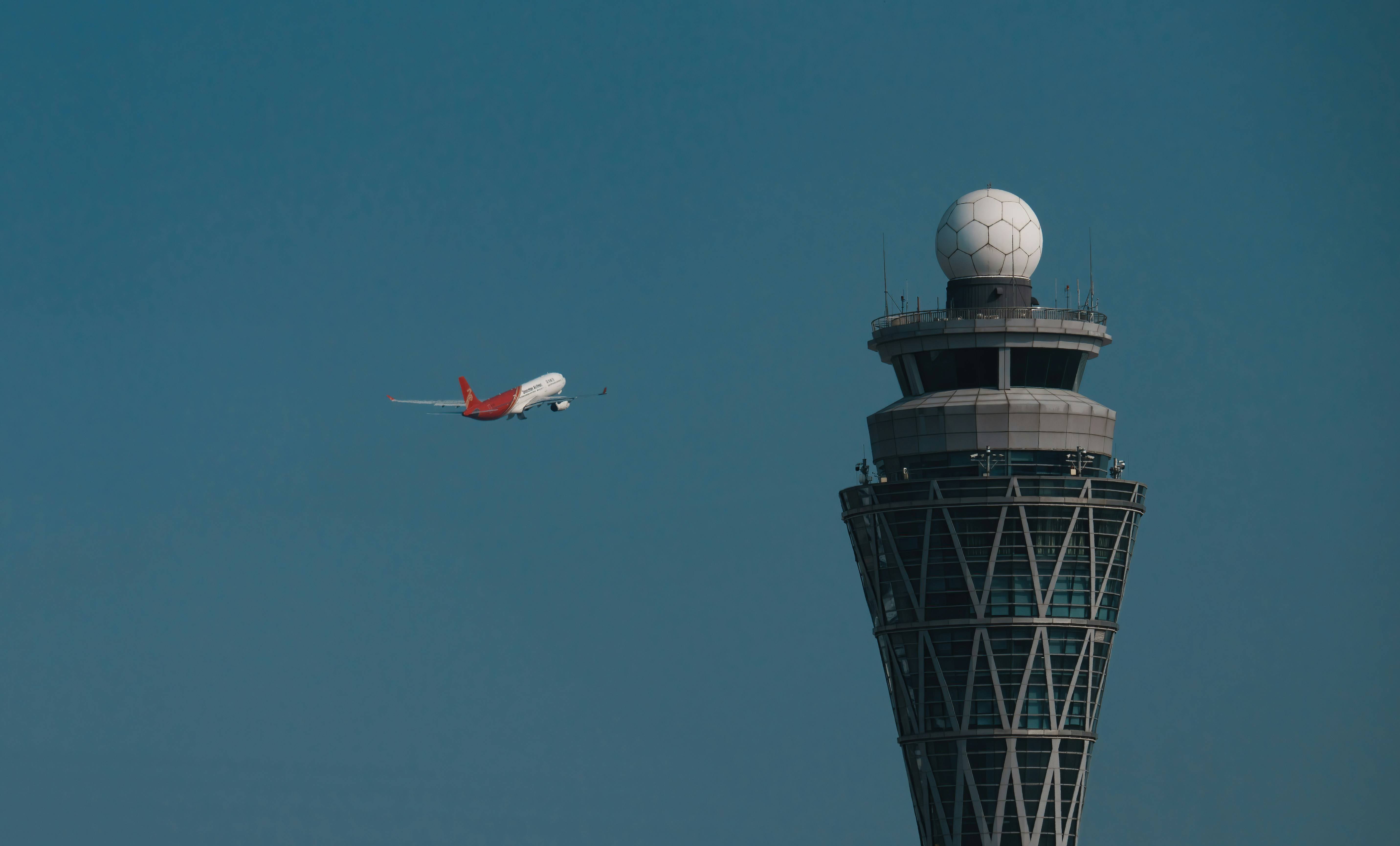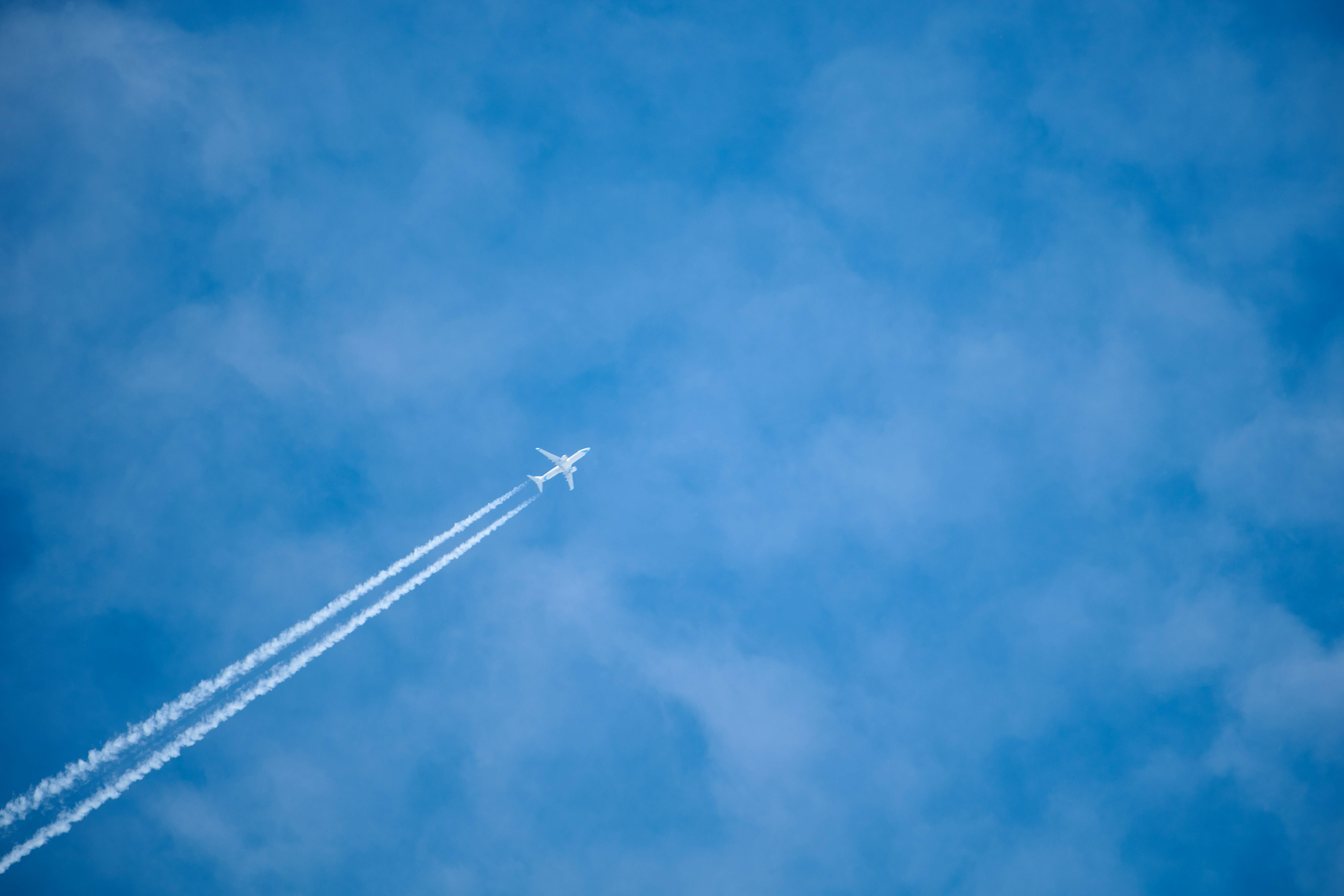Tracking Your Flight
As one who has flown through my fair share of airports, I’ve found that staying informed about flight status is crucial, whether I’m navigating between airports myself or waiting for a friend or family member to arrive. Flight tracking tools have become indispensable in ensuring I’m always up-to-date with everything that happens (and does!). On this page, I’m sharing insights and tools that will help you track any flight in real time and also help you understand how it all works. You can start tracking flights directly here or dive deeper into the details of how flight tracking works by exploring the additional resources on the linked pages.
With a good flight tracker, I don’t just get the basics—I can see the flight’s actual location on an interactive map and dive into all the little details that matter. I’ve found it particularly useful to check:
- Is the flight arriving on time?
- Are there any delays or cancellations?
- Which departure and arrival gates will the flight use?
- Which baggage carousel will my bags be delivered to?
Flight tracking has come a long way since I first started using it. The technology behind it is pretty fascinating—combining radar data, Automatic Dependent Surveillance-Broadcast (ADS-B), and even satellite-based tracking. I’ve noticed how much more accurate and timely the updates have become over the years, making it easier than ever to stay informed about what’s going on with my flight.
Whenever I need to track a flight, whether it's mine or someone else's, I always head to the flight tracker on iFly. Just enter the flight, route, or airport details into the widget below, and you'll have all the information you need right at your fingertips.
Flight & Airport Status
Airport status is only available for US airports
Track Flights by Airline
If you know your airline, we've listed some of the more popular US carriers below so you can jump down and use the links provided to see the status and tracking information for a particular airline. If you also need info on online check-in procedures or baggage rules and fees, we also provide that for each airline.
American Airlines
Carrying an average of more than 500,000 passengers daily, American (AA) Airlines is the biggest commercial airline in the world and one of the founding members of the OneWorld alliance. Operating to/from 55 countries stretching five continents, American has a network of 95 international and 95 domestic destinations. The airline has 10 hubs, with the largest one being Dallas/Fort Worth. Use the American AA flight status tracker to track this airline's flight.
United Airlines
United Airlines is the third-largest commercial airline in the world. The Star Alliance member has a route system that stretches to 48 countries across five continents, with a total of 118 international destinations (Africa has returned to be a part of United Airlines' fly-zone once again). Domestically, United operates in 240 destinations. The airline operates 8 hubs, with the largest one in Chicago. The United flight status tracker will provide you live information specific to the flights of this airline.
Delta Airlines
Being one of the founding members of the SkyTeam alliance, Delta Air Lines is the second-largest airline in the world. Delta flies over 325 destinations worldwide, serving in 52 countries on six continents. They're the only company that operates flights from the US to Copenhagen, Lagos, Stuttgart, and Dakar. The airline has 9 hubs located all over the US, with the largest one being in Atlanta. Want to track your Delta Airlines flight?
JetBlue Airways
JetBlue Airways is the seventh-largest airline in North America in terms of passengers carried. This low-cost carrier has a large network of 100+ domestic and international destinations. Most of these are centered around the United States and the Caribbean. It also operates in a smaller number of destinations in Central and South America. It was one of the first airlines to be granted a license to fly to Cuba in 2015 (until later discontinued along with all other US carriers). It isn't part of any major airline alliances but has codeshare agreements with 21 airlines. Track your Jetblue flights using the JetBlue Airways flight status.
Southwest Airlines
Southwest Airlines is currently the world's largest low-cost carrier. Southwest operates in the United States as well as to Mexico, Central America, & the Caribbean, flying to over 100 destinations. Being one of the major American airlines, it carried the most domestic passengers in the States in 2022. The airline focuses on a point-to-point system and doesn't use the hub and spoke system of major airlines. All your Southwest flights can be tracked using the Southwest Airlines flight status tracker.
Note that most airlines (like Delta, United, Southwest, British Airways, etc.), use slightly different criteria for "arrival" vs "departure" than what the airport might report, or the civil aviation authority (i.e. the FAA). Is the aircraft at the gate, or is it actually taxiing? This is why the live flight tracker aggregates the flight status information from multiple sources, helping travelers to accurately track flights in real-time.
About the Flight Tracker
iFly, along with a myriad of websites and apps, provides a live flight tracking system that gives passengers real-time updates on where the flight is at any moment. The flight tracker gives you the power to track a flight's status, see their arrival and departure times, check the gates associated with the flights, and get the live position of your tracked flight on our interactive map.
Whether you're the occasional vacationer or business traveler, you won't need to be rushing to the airport prematurely, or worse yet, be late after making your friends wait in the lounge. You'll also avoid the hassle of locating your flight at the airport and looking at different gate monitors to find where you're supposed to go. Additionally, you'll save yourself from the frustration of unnecessary waiting at the airport in case your flight is canceled. If you're a plane-spotting aviation enthusiast, you already know how valuable flight trackers are! Explore more benefits of flight tracking here.
How it works
Aircraft are tracked by a variety of means, but primarily through their use of transponders. Aircraft transponders are devices that emit a signal that is received by ground-based receivers. The signal provides information about the aircraft, including its altitude, speed, and location. The transponder signal is also used to identify the aircraft to air traffic controllers.
The flight tracker relies on a host of technologies, including advanced GPS technology and ADS-B receivers and satellites stationed worldwide, making it possible to securely track flights and their arrival or departure times in real-time. This easy-to-use feature only requires you to provide your flight number, date of departure, or the route to track the location, status, and timing of every flight.
The information from these various tracking systems is combined to create a "picture" of the aircraft's location. This information is used by air traffic controllers to direct aircraft and ensure that they are safely separated.
FAQ: Flight Tracking
Find more help here for your journey through the airport


